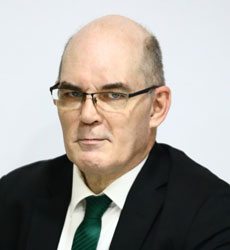Read this in The Manila Times digital edition.

THERE is nothing official or otherwise particularly special about the "first 100 days" timestamp applied to new presidents, so when President Bongbong Marcos initially said that he was not inclined to mark the occasion (the 100th day was on October 8), I thought that might be a sensible breaking of a rather useless tradition. One of the biggest handicaps of Philippine governance, at least at the national level, is its lack of continuity. Most things a national government needs to do cannot be accomplished within the span of 100 days, or a legislative session that lasts only a few months before taking a recess, or the three-year interval between elections; as a consequence, government does much less than it should, or could if it did not mentally fence itself in with timed interruptions.
Continue reading with one of these options:
Ad-free access
P 80 per month
(billed annually at P 960)
- Unlimited ad-free access to website articles
- Limited offer: Subscribe today and get digital edition access for free (accessible with up to 3 devices)


